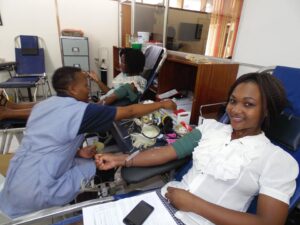In early July, five teenagers went viral on social media for all the wrong reasons. A video (graphic: viewer discretion advised) of the 5 assaulting another teenager circulated until it got to the attention of the police leading to their arrest following investigations.
The 5 were charged with, among other things, aggravated sexual assault. A reader asked us why they were charged with aggravated sexual assault when the victim was the same sex as them.
Here are some of the facts around sexual assault, aggravated sexual assault and rape as defined in Zimbabwean law.
Indecent Assault
This is when a person commits upon a another person any act involving physical contact that would be regarded by a reasonable person to be an indecent act, other than sexual intercourse or other act involving the penetration of any part of the female person’s body or of his own body with indecent intent and knowing that the other person has not consented to it or realising that there is a real risk or possibility that the other person may not have consented to it. It can be male on female, male on male, female on female or female on male. Of note is that this offense does not involve any penetration.
Aggravated Indecent Assault
This can be committed by either males or females. It can be male on female, female on male, male on male or female on female. Unlike indecent assault, it involves penetration. In the case of male on female and male on male, the penetration excludes sexual or anal intercourse. For female on male, this involves sexual intercourse with or committing upon a male person any other act involving the penetration of any part of the male person’s body or of her own body. For female on female, it involves committing any act involving the penetration of any part of the other female person’s body or of her own body with indecent intent and knowing that the other person has not consented to it or realising that there is a real risk or possibility that the other person may not have consented to it. The penalty for aggravated indecent assault is the same penalty as is provided for rape.
Rape
The offense of rape is said to have been committed if a male person knowingly has sexual intercourse or anal sexual intercourse with a female person and, at the time of the intercourse the female person has not consented to it; and he knows that she has not consented to it or realises that there is a real risk or possibility that she may not have consented to it.
Of note is that Zimbabwean law recognised marital rape. The law states that it shall not be a defence to a charge of rape, aggravated indecent assault or indecent assault that the female person was the spouse of the accused person at the time of any sexual intercourse or other act that forms the subject of the charge, although this prosecution can only be authorised by the Attorney General.
Sodomy
The offense of sodomy is different from the ones mentioned above in that it exists where there was consent. The offense is said to have been committed when a male person who, with the consent of another male person, knowingly performs with that other person anal sexual intercourse, or any act involving physical contact other than anal sexual intercourse that would be regarded by a reasonable person to be an indecent act. Also, for this offense, both parties to the performance of an act referred to may be charged with and convicted of sodomy.
Cases where consent absent or vitiated
Sexual offenses mainly hinge on consent. Therefore, it is important that consent is understood. Under Zimbabwean law, a person shall be deemed not to have consented to sexual intercourse or any other act that forms the subject of a charge of rape, aggravated indecent assault or indecent assault, where the person charged with the crime:
(a)uses violence or threats of violence or intimidation or unlawful pressure to induce the other person to submit; or
(b)by means of a fraudulent misrepresentation induces the other person to believe that something other than sexual intercourse or an indecent act, as the case may be, is taking place; or
(c)induces the other person to have sexual intercourse or to submit to the performance of the indecent act, as the case may be, by impersonating that other person’s spouse, or lover; or
(d)has sexual intercourse or performs an indecent act upon the other person while that other person is asleep, and that other person has not consented to the sexual intercourse or the performance of the act before falling asleep; or
(e)has sexual intercourse or performs an indecent act upon the other person while that other person is hypnotised or intoxicated from the consumption of drugs or alcohol so as to be incapable of giving consent to the sexual intercourse or the performance of the act, and that other person has not consented to the sexual intercourse or the performance of the act before becoming so hypnotised or intoxicated.
In all these circumstances, the burden of proving that a person gave consent lies with the person charged.
Conclusion
There are other sexual offenses not covered here such as bestiality; sexual intercourse or performing indecent acts with young persons; sexual crimes committed against young or mentally incompetent persons outside Zimbabwe; and sexual intercourse within a prohibited degree of relationship.
To answer our reader’s question on why the teenagers were charged with aggravated indecent assault even though their victim was also female, the answer lies in Section 66 (i) (ii) of the Criminal Law (Codification and Reform) Act. This was when, according to the police, they ‘went on to insert three sticks into her private parts’. The teenagers have not, at this time, been convicted of any crime. Their case is still before the courts.











